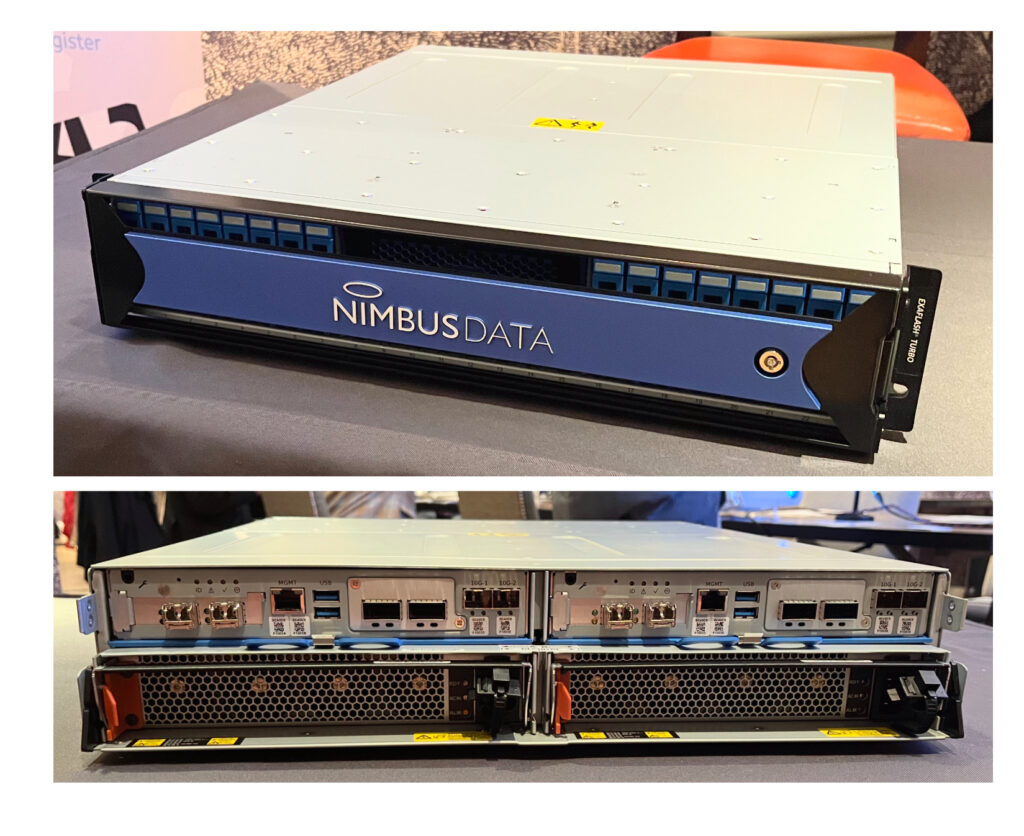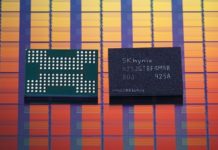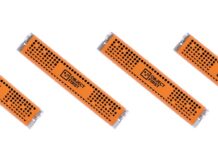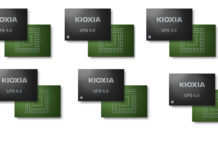German system house weSystems is working with partner Atempo and its Miria data mover to archive 40 PB of data in the Azure public cloud’s Blob Storage Archive Tier. The archive belongs to a German automotive manufacturer and is growing at 2 PB/month. A September 2023 weSystems case study said: “Until now, our customer, a well-known German automotive supplier, has stored the data volumes accumulating in daily production on an EMC Isilon storage. A single file can reach a size of 500 GB. At regular intervals, the data was transferred to tape systems for backup and long-term archiving.” Now a hybrid backup and archiving system transfers data to central Ceph storage in a secure data centre at high data throughput. Specifically, most of the data is first transferred to weSystems FlexStorage, based on Ceph, in a central German datacenter and stored there for approx. 3 months. Data can be retrieved from it using Miria. In a second step, the data is then transferred to the Azure Archive Tier, as the customer specified, with Miria retrieval again.
…
Cloudian has released new open source software that integrates machine learning library PyTorch with local data lakes running on Cloudian HyperStore S3-compatible object storage, eliminating the dependency on a dedicated parallel file system for ML workflows. Data scientists and AI developers can run ML on data resident in local Cloudian object storage, without the need to move and stage the data into another system. The ML tasks can also run on local compute resources such as AWS Outposts and Local Zones. Cloudian is a certified Service Ready partner for AWS Outposts and Local Zones, and is commercially available through the AWS Marketplace.
Cloudian contributed enhancements to AWS Labs’ open source S3-Connector-for-PyTorch to enable PyTorch ML algorithms to access data in Cloudian’s HyperStore object storage system via the AWS S3 API. The enhanced S3 connector is available from the GitHub repositories of AWS Labs and Cloudian.
…
The 2024 AEC Data Insights Report from data collaborator Egnyte highlights the exponential growth in the AEC industry’s transition from local storage to cloud storage and collaboration solutions. Data storage requirements of the companies surveyed grew at an average 50.3 percent CAGR. This rapid growth trend began during the pandemic, but as companies started to see the benefits of the cloud, growth has maintained that pace. Transitioning to the cloud allows companies to leverage technology integrations, artificial intelligence, real-time collaboration, and meet strict regulatory requirements, such as the Cybersecurity Maturity Model Compliance (CMMC) in the United States and the Building Safety Act in the United Kingdom. To download a copy of the report, click here.
…
Can Hammerspace’s HyperNAS really add GPUDirect speed to non-GPUDirect-supporting filers? An industry source says GPUDirect does RDMA direct from the storage system into GPU memory. Let’s suppose you add HyperNAS to a Qumulo system, which doesn’t natively support GPUDirect. HyperNAS provides GPUDirect Hammerspace-held metadata client access but doesn’t provide an RDMA path out of the Qumulo system. Its data, the source suggests, wouldn’t flow at RDMA-based GPUDirect speed. A benchmark test would be necessary to verify this claim.
…
S3 tiering to tape with Red Hat-acquired NooBaa’s gateway is discussed in a four-part IBM Storage blog by Senior Technical Staff Member Nils Haustein and others. The blog talks about a new and modern S3 object storage services, using open source NooBaa, that can be installed on IBM’s Storage Scale. NooBaa provides S3 endpoints to users and applications, and allows full control over data placement with dynamic policies per bucket or account. The NooBaa-core standalone software package can be deployed on a Storage Scale cluster providing the S3 endpoints while the buckets and objects are stored in Storage Scale file systems. By leveraging the integration of Storage Scale with Storage Archive, S3 buckets and object stored in the file system can be tiered to tape.
…
SaaS app backup supplier Keepit has opened a UK headquarters in the City of London and expanded its UK team, led by industry veteran Jerry Mumford. Over the past three years, Keepit has seen 100 percent year-over-year growth in the UK and is on target to repeat this in 2024. Keepit counts The National Gallery and Oxford University Innovation Ltd among its UK customers.
…
Tech Radar has written about MaxDigitalData, a GoHardDrive brand, which sells renewed (used and refurbished) and end-of-life disk drives. A 12TB drive with a three-year warranty costs less than $90. A 14 TB SATA, 7,200 rpm drive costs $129.95. Reddit has a thread about the company and its products.
…

Nimbus Data CEO Tom Isakovich presented a new FlashRack Turbo all-flash system at an A3 Technology Live event in London. It’s a follow-on from the existing ExaFlash array, and composed of a scaled-out, independent sets of redundant 2RU nodes, which use off-the-shelf NVMe TLC SSDs. There is no high-speed cluster interconnect. A node’s base chassis has two stateless x86 controllers and 24 drives, with two 2RU x 24-drive expansion shelves supported. Max capacity is 4.5 PB raw (to 15 PB usable); raw 1.5 PB/chassis, meaning 62.5TB drives. Asked if these were Solidigm QLC or TLC drives, Isakovich said: ”I can’t talk about that.”
The software supports block, file, and object access with one tier and logical space, with Ethernet (400g), FC, and InfiniBand connectivity supported. The array does about 50 GBps read and 40 GBps writes. Isakovich called it “the promised dream of the ideal storage platform” and claimed 10 PB of Nimbus costs 80 percent less than 10 PB of VAST. He said Nimbus is 20 years old, privately financed, has 30 staff, 200 customers (95 percent in the US), and 700 deployed systems. Nimbus is working on having its software delivered on an adapter card (DPU-esque) and on an intelligent, Ethernet-connected SSD.
…
Onna Technologies enables users to gather, analyze, and act on data to help minimize legal risk. It announced its data management platform has achieved Powered by Oracle Cloud Expertise and is now available in the Oracle Cloud Marketplace. Onna’s scalable platform supports multiple workflows across an organization by offering more than 20 pre-built connectors, multiple export options, and an intuitive interface.
…
Disk drive supplier Seagate has launched a new ecommerce website in the US. Customers who register will have first access to special pricing, free shipping offers, and other promotions. At launch, Seagate is offering an exclusive discount on its most popular gaming storage drives including the Xbox Storage Expansion Card for Xbox Series X|S 1TB at $129.99 (regularly $219.99), and Game Drive PS5 NVMe SSD for $89.99 (regularly $124.99). The company plans to expand the website to other regions later this year.
…
StorPool Storage has extended the capabilities of its Apache CloudStack integration in light of skyrocketing demand from VMware customers. CloudStack is an open source cloud computing software platform designed to deploy and manage large arrays of virtual machines as a highly available (HA), highly scalable IaaS system. CloudStack’s current KVM-hypervisor host HA feature depends on having NFS primary storage detect which nodes are online, even if other types of primary storage are used, such as faster block-level storage. StorPool extends the HA feature by adding a mechanism that overcomes the NFS primary storage heartbeat dependency to extend KVM host high availability for non-NFS storage in CloudStack environments. Future enhancements will support KVM host HA for hyperconverge infrastructure (HCI) deployments with CloudStack compute and StorPool storage running concurrently on the same servers.
…
TerraMaster has launched the F4-212 four-bay private cloud NAS for backup and home multimedia center use. The F4-212 is equipped with an ARM V8.2 Cortex-A55 64-bit 1.7GHz quad-core Realtek 1619B processor and independent NPU, built-in floating point unit (FPU) and NEON SIMD engine, video DSP hardware acceleration. Compared with the previous generation RTD1296, the performance is improved by 40 percent. The F4-212, running the latest TOS 5.1, meets diverse business needs, and enhances speed and security. It backs up data from Windows PC, Mac, mobile, HDD enclosure, and network disk for centralized management.








